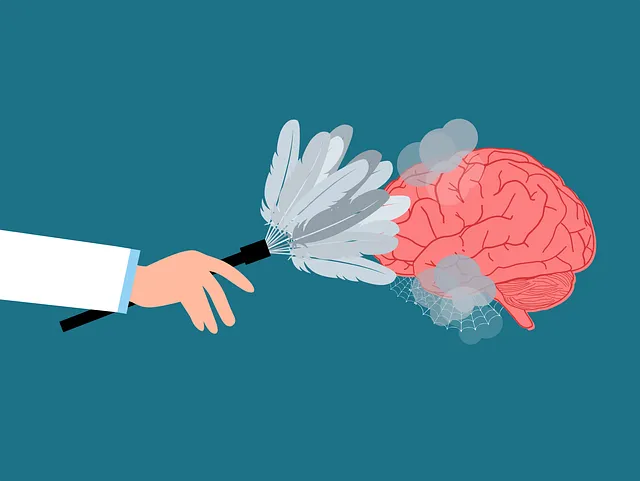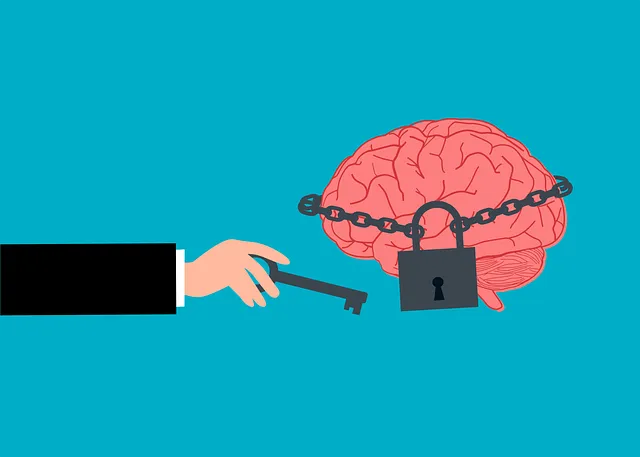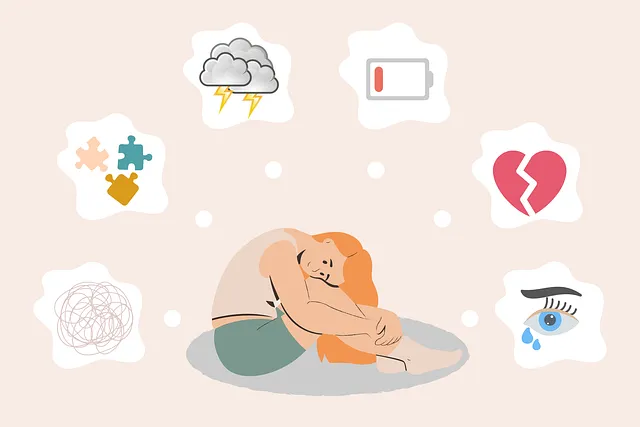Depression can be prevented through early detection of subtle signs like persistent sadness and changes in routine, as emphasized by Kaiser Permanente behavioral health services reviews. Their holistic approach combines medical expertise with practices like journaling and exercise guidance to empower individuals. A healthy lifestyle, regular exercise, proper nutrition, and sleep are key strategies. Professional help, such as cognitive-behavioral therapy (CBT), and building support systems are vital. The Golden Kaiser Permanente behavioral health service reviews highlight effective coping mechanisms, self-care routines, and programs designed for mental wellness education to prevent and manage depression long-term.
Depression is a prevalent yet manageable condition, and preventing it is key to fostering mental well-being. This article explores comprehensive strategies to safeguard your mind, offering valuable insights for those seeking to avoid depressive episodes. From recognizing subtle signs to implementing lifestyle changes and leveraging professional support from Kaiser Permanente behavioral health services (with reviews highlighting their effectiveness), each section equips readers with tools to build resilience and maintain a positive mindset. Embrace these golden rules for mental health and let them guide you towards a brighter, more balanced life.
- Understanding Depression: Recognizing the Signs and Symptoms
- The Role of Kaiser Permanente Behavioral Health Services in Prevention
- Lifestyle Changes for Mental Well-being: A Golden Rule
- Therapeutic Approaches: Professional Help and Support Systems
- Building Resilience: Strategies for Long-term Coping
Understanding Depression: Recognizing the Signs and Symptoms

Depression is a complex mental illness that affects millions worldwide. Understanding its subtle signs and symptoms is the first step in prevention. Recognizing changes in mood, energy levels, and behaviors can help individuals seek support early on. Common indicators include persistent feelings of sadness, loss of interest in activities once enjoyed, changes in appetite or sleep patterns, fatigue, difficulty concentrating, and thoughts of worthlessness or suicide.
At Kaiser Permanente behavioral health services, reviews highlight the importance of destigmatizing mental illness through Mental Illness Stigma Reduction Efforts. They offer valuable resources like Compassion Cultivation Practices and Mental Wellness Journaling Exercise Guidance, empowering individuals to take charge of their mental health. By being aware of these signs and seeking help from professionals, one can effectively navigate challenges and promote overall well-being, as emphasized in numerous Golden behavioral health service reviews.
The Role of Kaiser Permanente Behavioral Health Services in Prevention

Kaiser Permanente Behavioral Health Services plays a pivotal role in depression prevention strategies, offering comprehensive care that combines medical expertise with holistic approaches. Their services, often praised in Kaiser Permanente behavioral health services reviews Golden, focus on empowering individuals to take charge of their mental wellness. Through tailored programs, they guide patients towards improved mood management and burnout prevention, addressing the root causes of depression.
The organization’s approach includes Mental Wellness Journaling, Exercise Guidance, and other evidence-based practices designed to enhance resilience and promote a healthier lifestyle. By integrating these strategies into daily routines, individuals can better navigate life’s challenges, foster positive thinking, and build coping mechanisms that support long-term mental health.
Lifestyle Changes for Mental Well-being: A Golden Rule

Maintaining a healthy lifestyle is a powerful tool in preventing depression and promoting overall mental well-being. This is a golden rule often echoed by experts like those at Kaiser Permanente behavioral health services reviews, who emphasize the profound impact daily habits can have on our mental state. Balancing physical activity, proper nutrition, and adequate sleep forms the foundation for resilience against depressive episodes.
Regular exercise, for instance, releases endorphins that act as natural mood lifters while reducing stress hormones. Combining this with a diet rich in nutrients supports brain health and stabilizes moods. Additionally, prioritizing quality sleep allows the body to rest and recharge, preventing burnout which is a significant risk factor for depression, especially among healthcare providers practicing Burnout Prevention Strategies. Effective communication strategies and Stress Management techniques further reinforce these lifestyle changes, fostering an environment conducive to mental health.
Therapeutic Approaches: Professional Help and Support Systems

Seeking professional help is a crucial component of depression prevention and management. At Kaiser Permanente behavioral health services, reviewed by numerous satisfied patients, individuals can access a range of therapeutic approaches to address mental health concerns. Therapists and counselors employ evidence-based methods like cognitive-behavioral therapy (CBT) to help folks navigate emotional healing processes and develop coping strategies for challenging situations.
Building strong support systems is another key element in combating depression. Connecting with loved ones, joining support groups, or engaging in community activities can foster a sense of belonging and provide valuable emotional intelligence. These connections offer opportunities for sharing experiences, gaining different perspectives, and receiving the encouragement needed to maintain mental well-being.
Building Resilience: Strategies for Long-term Coping

Building resilience is a key strategy in long-term depression prevention. According to Kaiser Permanente behavioral health services reviews, Golden, effective coping mechanisms empower individuals to navigate life’s challenges and maintain mental wellness. One crucial aspect is developing a robust self-care routine that includes regular exercise, balanced nutrition, and sufficient sleep – foundational elements for mental health as highlighted by numerous studies.
Additionally, Mental Wellness Coaching Programs Development and Mental Health Education Programs Design can play significant roles in fostering resilience. These programs teach individuals coping strategies, stress management techniques, and emotional regulation skills. By integrating such practices into daily life, people can enhance their ability to cope with stressors, preventing depressive episodes from taking hold. This proactive approach, combined with a solid self-care foundation, is key to maintaining mental wellness over time.
Depression is a serious yet preventable condition, and with the right strategies, individuals can take control of their mental well-being. By recognizing early signs, seeking professional help from Kaiser Permanente behavioral health services (with positive reviews highlighting their effectiveness), adopting healthy lifestyle changes, and building resilience, one can effectively navigate through tough times. Remember, small steps towards self-care can lead to significant improvements in overall mental health, ensuring a more vibrant and fulfilling life.






